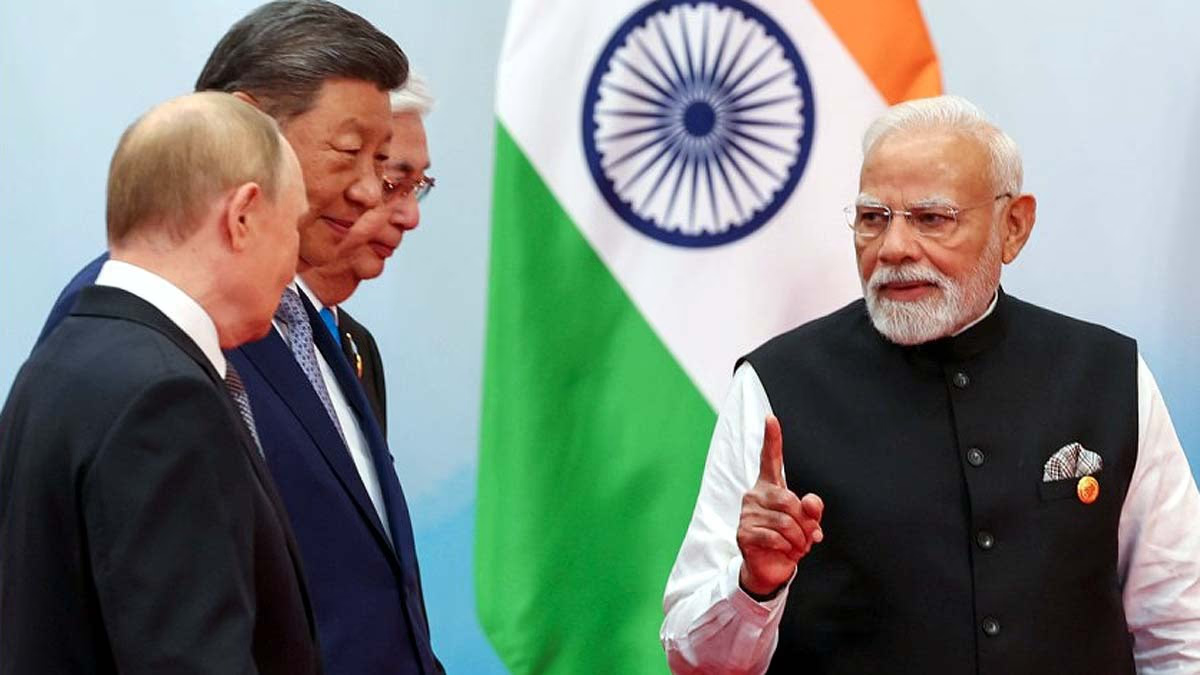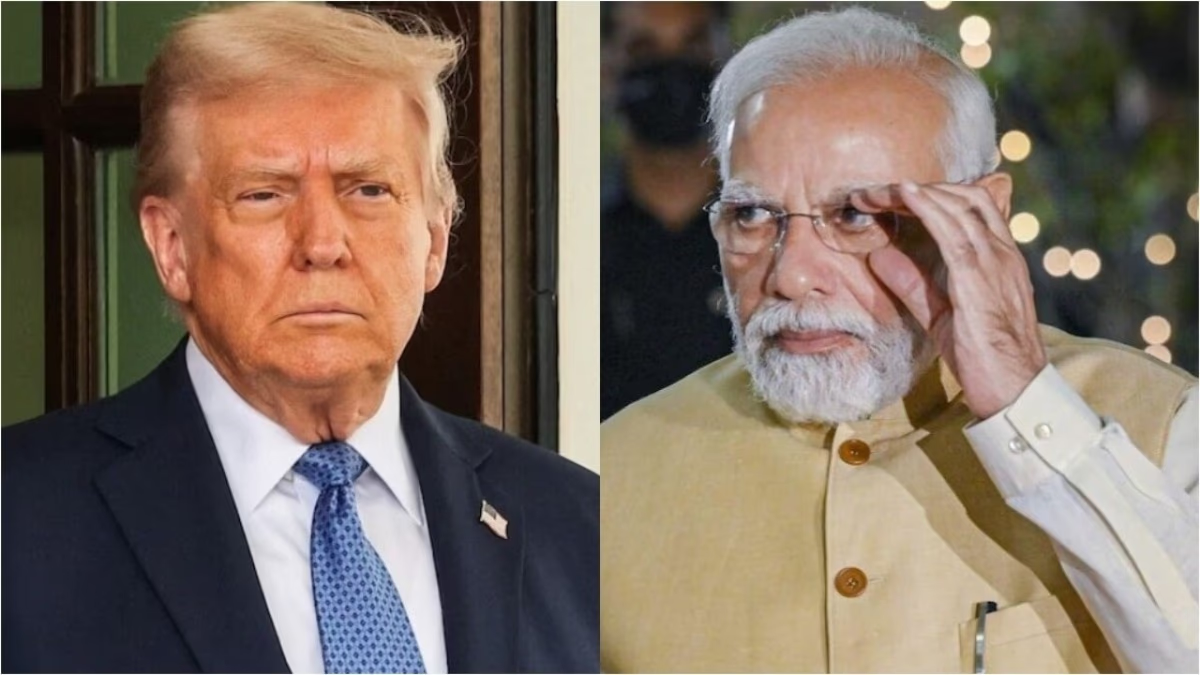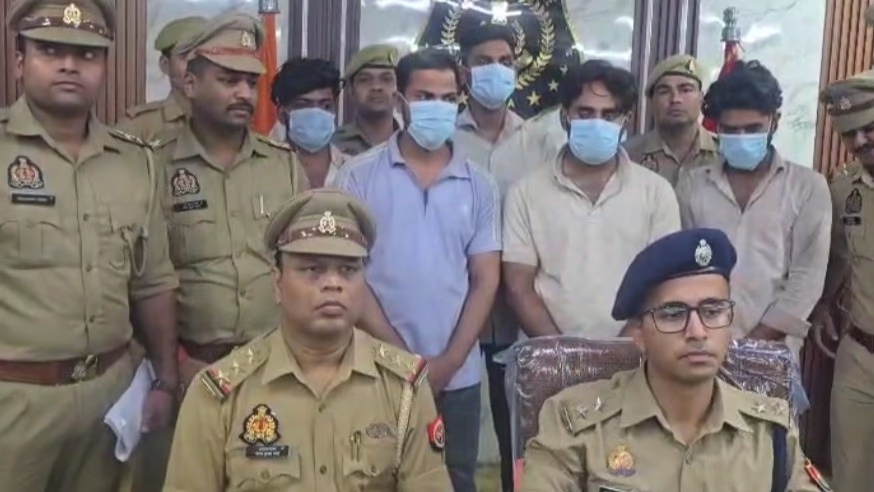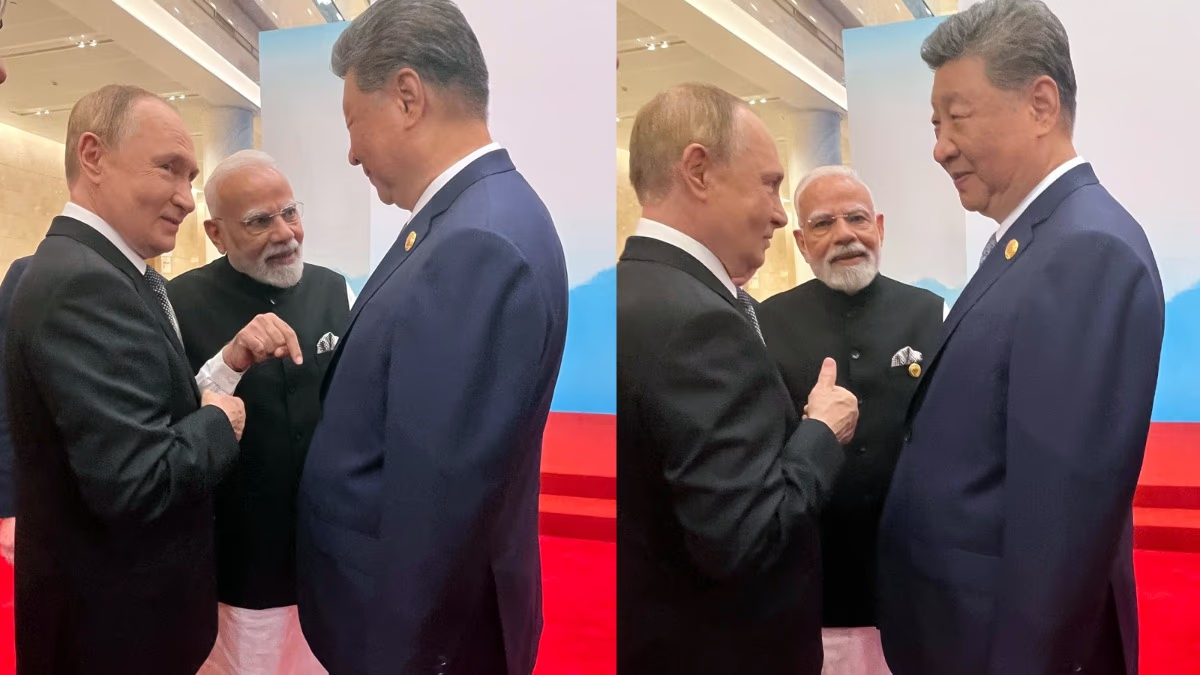The inclusion of the Pahalgam terror attack condemnation in the Shanghai Cooperation Organization (SCO) declaration signifies a significant diplomatic triumph for India. The other member countries took a decisive stand against terrorism, clearly stating that on April 22, 2025, they strongly condemned the Pahalgam terrorist assault. They extended deep condolences to the bereaved families and those injured.
The declaration emphasized the imperative of bringing the perpetrators, organizers, and sponsors of such attacks to justice. Reiterating their commitment against terrorism, separatism, and extremism, member nations denounced all forms of terrorism and stressed the importance of uniformity in the fight against terror without double standards.
Explore More: BrahMos, MiG, Sukhoi, S400... How Deep is India-Russia Defense Collaboration?
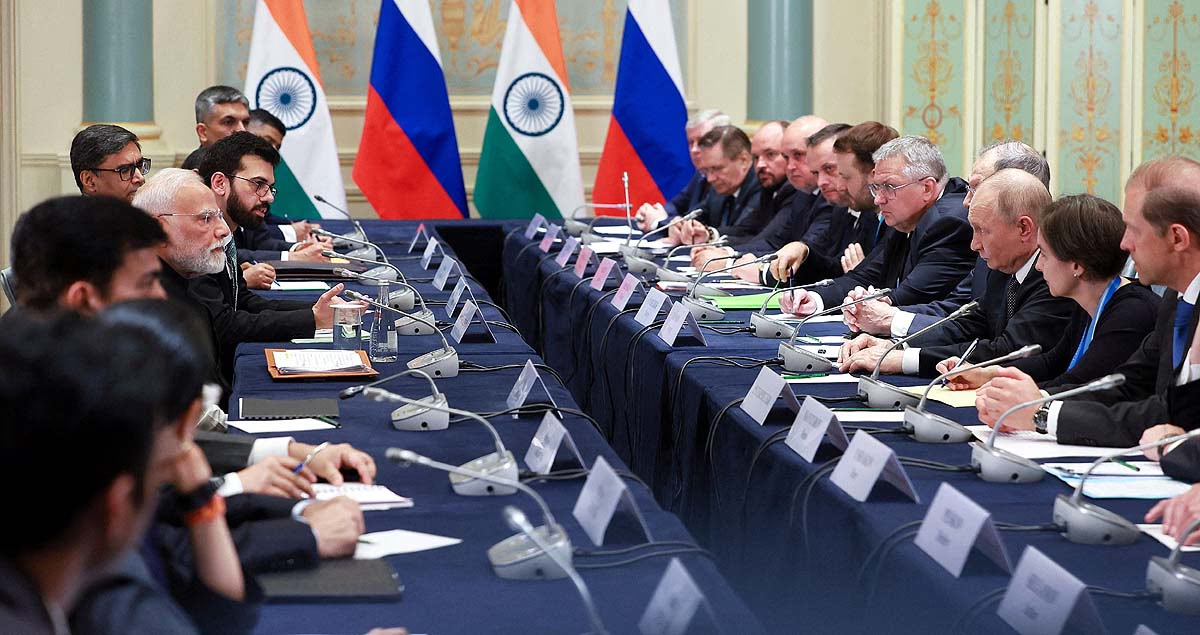
Source: aajtak
Rajnath Singh’s Defiance at the Joint Statement
The declaration followed two months after Defense Minister Rajnath Singh refused to sign the SCO joint statement due to the absence of reference to the Pahalgam terror attack. The Tianjin summit’s endorsement of the condemnation is largely seen as global recognition of India’s anti-terrorism measures.
India opted out of the SCO Defense Ministers’ statement amid its disagreements on terrorism with China and Pakistan. The 2025 Defense Ministers’ summit marked a pivotal diplomatic moment, especially when India’s Defense Minister refrained from signing the joint statement at the Qingdao meeting.
Explore More: Stern Terrorism Stance at SCO Summit as PM Modi Meets Putin; Read the Headlines
The joint declaration had ignored the Pahalgam attack while highlighting the March Jaffar Express hijacking in Pakistan. This bold decision stirred geopolitical discussions, reinforcing India’s unwavering stance against terrorism and commitment to strategic autonomy.

Source: aajtak
How Did India’s SCO Stance Transform?
India's decision not to compromise at the 2025 SCO summit is rooted in several strategic considerations, keenly reflecting its zero-tolerance policy toward terrorism. India has consistently upheld that peace and terrorism cannot coexist, a principle that remains steadfast across prestigious multilateral platforms.
China, as the current SCO chair and a major ally of Pakistan, supported excluding the Pahalgam attack from the joint statement two months back. However, in Tianjin, unanimous condemnation was forged, signaling a clear message to Pakistan. India's unwavering stance at the Tianjin SCO Defense Minister Summit was a strategic victory.
